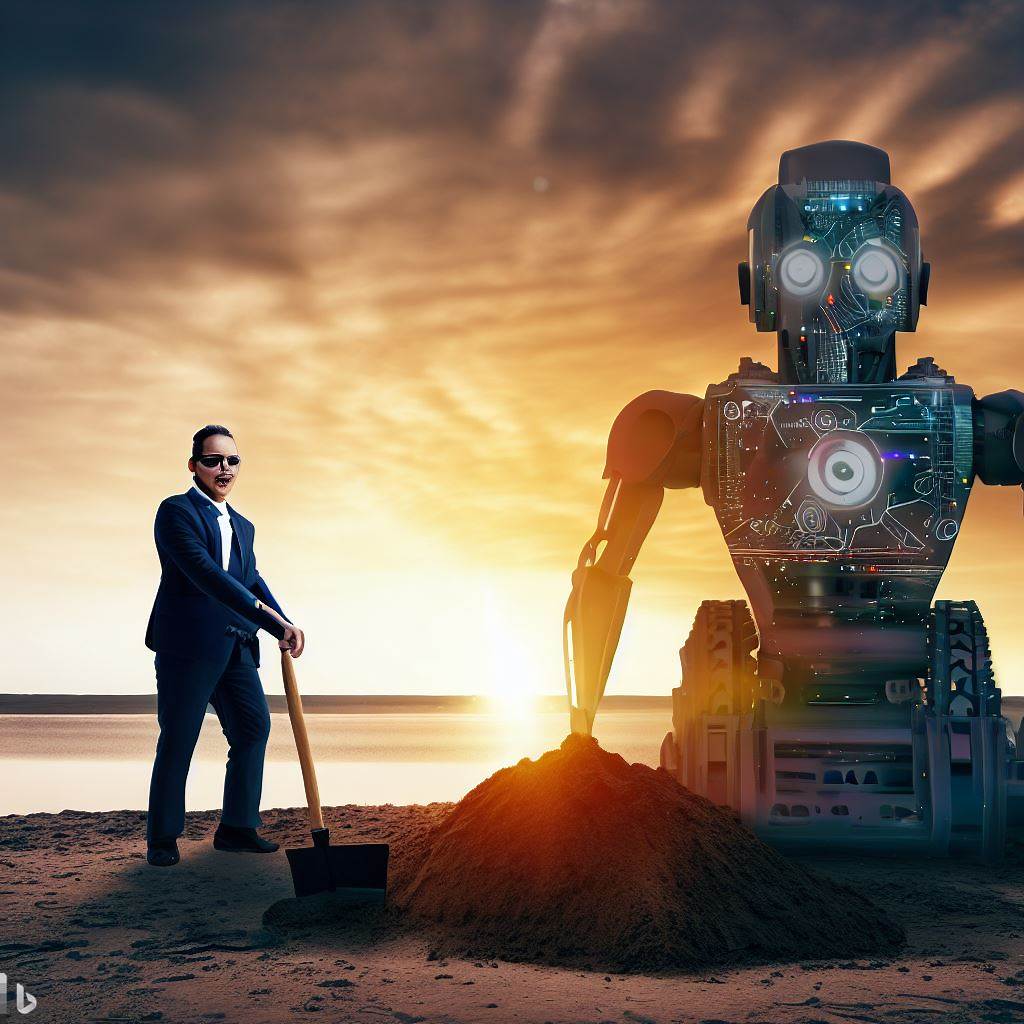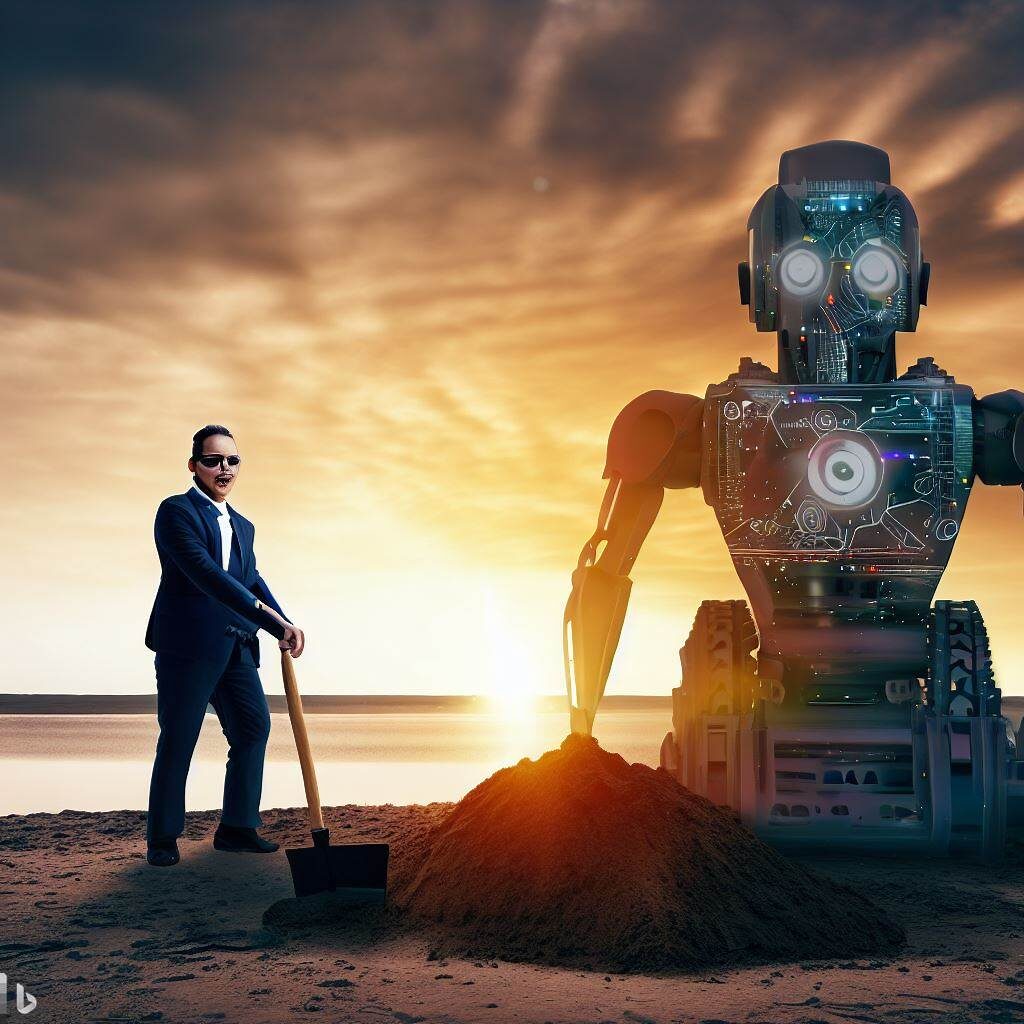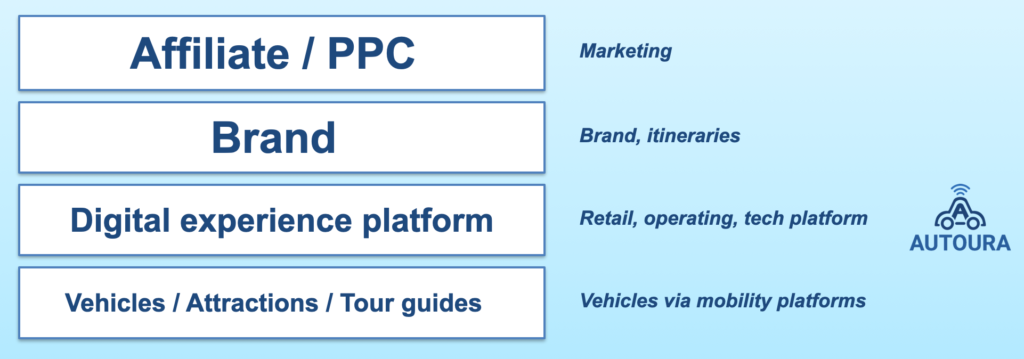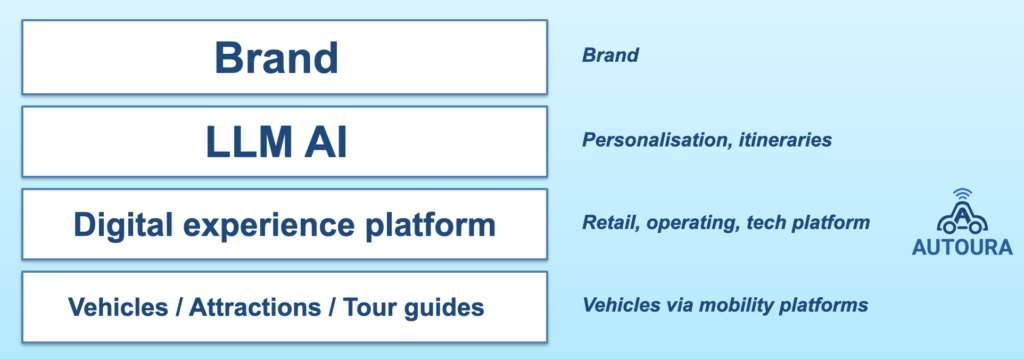
How will the tourism industry structure change as a result of AI?
April 3rd, 2023
by Alex Bainbridge
As someone who has been working full time on the impact of AI on local tourism since early 2018 [Evidence], the last six months have seen some kind of vindication.
However not everything I have foretold has come to pass, or at least not yet. And some of my approaches to hedge, or mitigate, the impact on incumbents haven’t worked (for the incumbents), leading me to shift more attention to innovating for my own benefit rather than the benefit of the existing industry.
My most recent realisation is that my approach needs a further course correction as a result of the introduction of plugins for ChatGPT. Not necessarily because of ChatGPT itself, but because this likely guides how all LLM* AI layers will incorporate downstream services into a conversational user interface.
*LLM is an acronym for Large Language Model and is the generic name for technology such as ChatGPT. LLM AI is a subset of generative AI.
Time to revist some assumptions and the state of play in April 2023:
Where will AI impact first? How fast will tourism be impacted?
AI impact is at two ends – consumer facing distribution & operating tours.
There is a third sector, AI for operating businesses (as opposed to operating tours). I am not that interested in this (as an innovation zone) because this zone will be dominated by horizontal tech innovators (i.e. those who are building tools for small businesses accross multiple industries).
My previous expectation was that the impact of AI would be gradual. After all, autonomous vehicles (powered by AI) are a city by city scaleup and require hardware. You can see years, or at least months, in advance where you need to focus your resources.
However AI on consumer facing distribution is “whole world at once” impact, due to being software only. i.e. bigger and faster than I was preparing for.
Can I recover? Yes – we are now operating (testing) AI enabled autonomous vehicle experiences in 4 US cities. Our tech works. But my “go to market” approach was structured around gradual scaleup…. so I need to fix that 😉
ChatGPT
My initial expectation was that the key innovation here was going to be their API. Now, with the plugin model, it is the ChatGPT service itself which we have to pay attention to.
API integrations remain possible of course, but now any service using the ChatGPT API (or Chat API from OpenAI if you want to more accurately call it that) will have to compete with the ChatGPT platform itself, where a consumer may have selected 5 different travel service plugins to design their own intelligent travel agent. Roll forward 12 months, that is not what I want to compete with.
So instead we have to join the plugin race, at least to get to the point where we can learn if it is noteworthy.
But where do plugins fit the existing industry structure?
- Not massively usable by tour operators – because no consumer knows the tour operator so will not add their plugin
- Not massively usable by rez tech – because most rez tech have no consumer facing services, again the consumer will not add their plugin, the same problem the tour operators face
- Can be used by OTAs – as these are the brands that consumers recognise and engage with long term
However the problem the OTAs have is that conversational consumers want a different kind of product than what OTAs can provide.
Instead of tours (think of them as pre-made meals), consumers want to build their own itineraries (think of them as food ingredients). OTAs need to be able to source bookable tour guides, not bookable tour itineraries, from tour operators*.
Then the OTA needs a massive logic layer to work out whether the consumer has put together an itinerary that is logical, available, suitable…..
The ChatGPT plugin architecture is challenging for the existing OTA > rez tech > tour operator industry model.
* I am very specifically saying tour operating here. For attractions / activities, the conversation is slightly different as these are immutable. Immutable experience units (first talked about in 2019) still applies.
I have started saying "immutable experience unit" for a product (e.g. rafting / attraction) that can't be broken down (unlike e.g. a city centre walking tour that CAN be broken down into individual points of interest that can be recombined in a different order). Do you like that?
— Alex Bainbridge 🆎 (@alexbainbridge) February 14, 2019
My 2022 DXP model
My longstanding new industry model based on AI (that I published 12 months ago) is as follows:
Does that model withstand LLM innovation coming in at the top of the funnel?
Short answer is yes.
The weakest point of the model previously was at the distribution end, the top of the funnel. ChatGPT with plugins is the personalised distribution layer the model needs.
New 2023 DXP model
Incorporates LLM AI:
Brand still plays a key part. e.g. you will be talking to the Marriott Plugin, using ChatGPT, to design an experience that will be operated in the Marriott brand.
What does a tourism service look like when LLM and autonomous vehicles combine into to a consumer service?
This from Baidu is a kitchen sink video however as a result it does cover all the bases. Tourism (sightseeing) makes a brief appearance in the second half:
Baidu Apollo is live with robotaxis in 10 Chinese cities, today.
Another kitchen sink video, this time from Hyundai, is more specific as a tourism product but doesn’t fully explain all the technologies involved:
Hyundai Motional is live with robotaxis in Las Vegas, today, available via Uber & Lyft.
Final thought
It is super hard innovating a new industry structure when the incumbent mindset is so focussed on protecting how everything currently works. As an example of that, no trade conference or trade press has hosted a debate on these proposals for a new AI-centric tourism industry structure.
Either way, we all have to deal with this technology. Like web, mobile and social in prior generations, these are “out of sector innovations” and can only be ignored for so long.
To quote a famous Silicon Valley technologist “it is time to build”.
Image: Bing Image Creator (powered by Dall-E) – Time to build foundations for our future AI-centric tourism industry

This content is protected by copyright. Link sharing is encouraged but duplication and redistribution is illegal




If you prefer to comment via LinkedIn, here is the thread
https://www.linkedin.com/posts/alexbainbridge_how-will-the-tourism-industry-structure-change-activity-7048600185702113280-8n9i